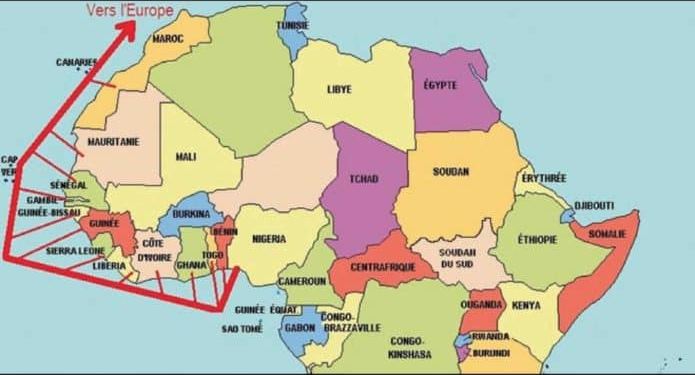West African leaders convened Friday in Abuja to address one of the continent’s most ambitious energy projects: the Nigeria-Morocco Atlantic Gas Pipeline. The high-level working session brought together energy ministers from member states of the Economic Community of West African States (ECOWAS) and key stakeholders from Morocco, including the country’s Minister of Energy Transition and Sustainable Development, Leila Benali. Joining her were Amina Benkhadra, Director General of the National Office of Hydrocarbons and Mines (ONHYM), and Moha Ouali Tagma, Morocco’s ambassador to Nigeria.
This significant gathering also included a Mauritanian delegation, as the meeting aimed to advance the Intergovernmental Agreement (IGA) for the Atlantic Pipeline. The goal: secure ministerial consensus before presenting the IGA to heads of state across ECOWAS, Morocco, and Mauritania for final endorsement.
A regional vision for energy collaboration
Organized by the ECOWAS commission, the joint ministerial meeting extended participation to Morocco and Mauritania’s hydrocarbon ministers, marking an important step following an earlier technical workshop. The gathering is part of the formal ECOWAS process for approving community legal texts that govern the project. Key topics on the agenda included finalizing the IGA and refining the Host Government Agreement (HGA), which lays out the legal and operational framework between the project states and potential investors.
Abuja meeting builds on extensive preparations
The Abuja meeting follows a regional workshop held in Lagos from October 8-11, where experts reviewed and validated crucial aspects of the Host Government Agreement. This workshop is the latest in a series of strategic planning sessions across West Africa, including previous rounds in Rabat, Marrakech, and Abidjan. These discussions—held at multiple points along the project’s pathway—have been instrumental in aligning all involved states on the pipeline’s governance and operational standards.
Originally envisioned in 2016 by Morocco’s King Mohammed VI and former Nigerian President Muhammadu Buhari, this project aims to connect energy resources across West Africa, bringing essential infrastructure to the countries along the Atlantic coast. The pipeline has seen robust support from the current Nigerian President, Bola Tinubu, underscoring the continued commitment from all parties.
A framework for sustainable development
The IGA and HGA provide critical foundations for the Atlantic Pipeline, structuring everything from governance to investment terms. These agreements aim to establish consistent legal and contractual relationships among participating states, setting standards for interactions with project investors.
In addition to economic growth, the pipeline is expected to enhance energy access for countries along its route, advancing sustainable energy development across the region. This aligns with King Mohammed VI’s broader vision of South-South cooperation, which prioritizes sustainable, integrated growth and energy self-sufficiency for Africa’s Atlantic nations.
Progress and milestones to date
Since its inception in December 2016, the Atlantic Gas Pipeline has achieved several key milestones. Memorandums of Understanding (MoUs) between Morocco, Nigeria, and transit countries have been signed, and technical studies essential to project design have been completed. As the ministers continue to refine agreements in Abuja, the project edges closer to reality, holding promise for a future where West African nations are united through shared energy infrastructure and sustainable development goals.
This latest meeting represents not only another step in securing an integrated energy network across the region but also a testament to Africa’s drive toward collaborative, long-term economic progress.





